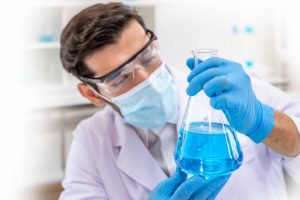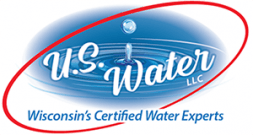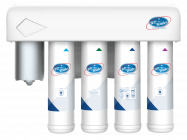The Right Solution Starts with an Accurate Test
 U.S. Water offers comprehensive well water testing services through its Wisconsin state-certified water testing lab. This ensures the most accurate testing and, with our test facility onsite, you are guaranteed a fast turnaround time. In addition to our basic analysis, we offer a full range of certified water tests and well inspection services.
U.S. Water offers comprehensive well water testing services through its Wisconsin state-certified water testing lab. This ensures the most accurate testing and, with our test facility onsite, you are guaranteed a fast turnaround time. In addition to our basic analysis, we offer a full range of certified water tests and well inspection services.



